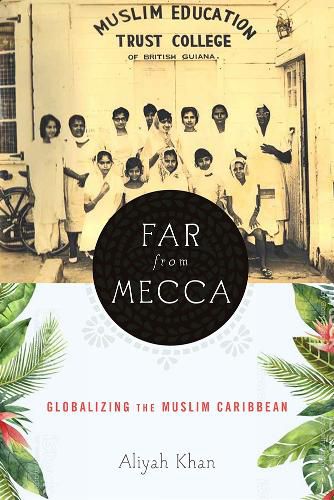Readings Newsletter
Become a Readings Member to make your shopping experience even easier.
Sign in or sign up for free!
You’re not far away from qualifying for FREE standard shipping within Australia
You’ve qualified for FREE standard shipping within Australia
The cart is loading…






Far from Mecca: Globalizing the Muslim Caribbean is the first academic work on Muslims in the English-speaking Caribbean. Khan focuses on the fiction, poetry and music of Islam in Guyana, Trinidad, and Jamaica, combining archival research, ethnography, and literary analysis to argue for a historical continuity of Afro- and Indo-Muslim presence and cultural production in the Caribbean: from Arabic-language autobiographical and religious texts written by enslaved Sufi West Africans in nineteenth century Jamaica, to early twentieth century fictions of post-indenture South Asian Muslim indigeneity and El Dorado, to the 1990 Jamaat al-Muslimeen attempted government coup in Trinidad and its calypso music, to judicial cases of contemporary interaction between Caribbean Muslims and global terrorism. Khan argues that the Caribbean Muslim subject, the fullaman, a performative identity that relies on gendering and racializing Islam, troubles discourses of creolization that are fundamental to postcolonial nationalisms in the Caribbean.
$9.00 standard shipping within Australia
FREE standard shipping within Australia for orders over $100.00
Express & International shipping calculated at checkout
Far from Mecca: Globalizing the Muslim Caribbean is the first academic work on Muslims in the English-speaking Caribbean. Khan focuses on the fiction, poetry and music of Islam in Guyana, Trinidad, and Jamaica, combining archival research, ethnography, and literary analysis to argue for a historical continuity of Afro- and Indo-Muslim presence and cultural production in the Caribbean: from Arabic-language autobiographical and religious texts written by enslaved Sufi West Africans in nineteenth century Jamaica, to early twentieth century fictions of post-indenture South Asian Muslim indigeneity and El Dorado, to the 1990 Jamaat al-Muslimeen attempted government coup in Trinidad and its calypso music, to judicial cases of contemporary interaction between Caribbean Muslims and global terrorism. Khan argues that the Caribbean Muslim subject, the fullaman, a performative identity that relies on gendering and racializing Islam, troubles discourses of creolization that are fundamental to postcolonial nationalisms in the Caribbean.